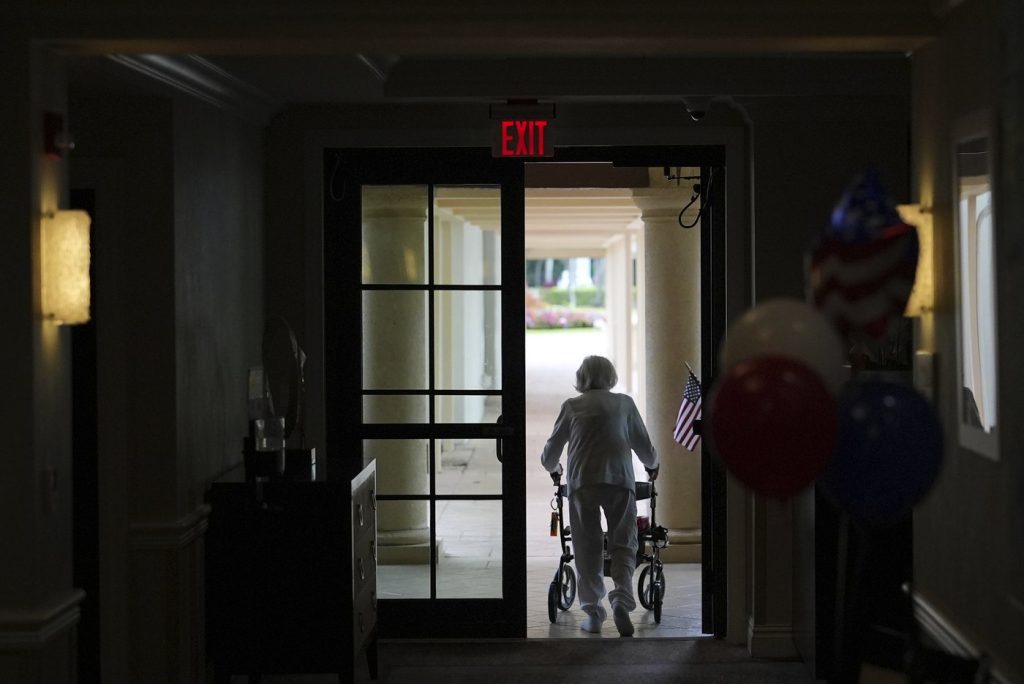NEW YORK (AP) — Nursing homes in the United States are facing significant challenges in staff recruitment due to the impact of President Donald Trump's immigration policies. These facilities, which provide care for older adults and individuals with disabilities, are experiencing a loss of employees who have had their legal work status revoked. Moreover, as legal immigration declines, the pipeline for potential workers is dwindling, raising concerns about future staffing shortages.
Deke Cateau, CEO of A.G. Rhodes, which operates three nursing homes in the Atlanta area, indicates that one-third of his staff comprises foreign-born individuals from approximately 30 countries. Cateau anticipates losing eight workers due to the revocation of their Temporary Protected Status (TPS), a program that allows individuals from countries experiencing turmoil to live and work legally in the U.S. Under the Biden administration, TPS was expanded to include people from countries like Venezuela and Haiti, but this expansion is threatened by the current administration's policies. Cateau notes that while those losing TPS represent a small fraction of the total workforce, their positions will be difficult to fill.
Nearly one in five civilian workers in the United States is foreign-born, according to the Bureau of Labor Statistics. In caregiving roles, this representation is even higher, with over a quarter of nursing assistants, home health aides, and personal care aides being foreign-born. As the aging Baby Boomer generation continues to increase demand for caregiving services, industry experts predict significant growth in job opportunities, with the BLS projecting around 820,000 new positions created by 2032. Given this backdrop, Trump’s renewed restrictions on immigration have sown uncertainty across the long-term care sector.
Katie Smith Sloan, CEO of LeadingAge, an organization representing nonprofit care facilities, notes that many nursing homes nationwide are feeling the repercussions of immigration turbulence. Some reported that employees, fearing sweeps and raids, have stopped coming to work, even if they are legally in the U.S. Others are staying home to care for children in light of uncertainties linked to school attendance and fears of family separation due to immigration enforcement. Additionally, many nursing homes are facing a slowdown in job applications.
Rachel Blumberg, CEO of a nursing facility in Boca Raton, Florida, has already lost ten workers whose status derived from humanitarian parole that has been revoked, and she expects to lose another thirty soon due to the end of TPS for Haitian workers. She describes the situation as the 'tip of the iceberg,' anticipating more departures as family member deportations impact employees’ decisions to remain in their jobs. Blumberg, who received notice of her employees’ status changes with less than a day's warning, is frantic to fill shifts, despite having increased salaries and referral bonuses in a bid to attract new workers.
The statistics point to a gender imbalance in front-line caregiving; a significant majority of caregivers are female and come from minority backgrounds, with the average wage being only $16.72 per hour as of 2023. The COVID-19 pandemic exacerbated staffing challenges as nursing homes saw a substantial exodus of workers. Although some facilities had begun to stabilize their employment numbers as the pandemic waned, the immigration crackdown has once again threatened the stability of staffing levels.
Industry leaders express frustration about the focus Trump's administration places on other sectors that rely on immigrant workers, such as hospitality and agriculture, while neglecting the critical nature of caregiving professions. Long-term care facilities are also struggling to secure visa approvals for nurses they seek to recruit from abroad, with the recruitment process now significantly prolonged. Mark Sanchez, chief operating officer of a nursing home in New Rochelle, New York, says potential candidates are considering other countries that are perceived as more welcoming.
In many instances, long-term care workers are drawn to alternative job opportunities in hospitals, restaurants, and other sectors due to better pay or working conditions, culminating in substantial turnover rates within nursing homes. Robin Wolzenburg, affiliated with LeadingAge in Wisconsin, highlights her organization's previous success in integrating Afghan and Ukrainian refugees into nursing homes, but notes that with Trump halting most refugee admissions, no new candidates are available for these roles.
Lynne Katman, founder of Juniper Communities, acknowledges the dual challenges of recruiting a dedicated workforce amidst a demographic shift that demands more long-term care workers. She emphasizes that while caregiving can be a challenging profession with relatively low pay, many immigrants view it as a noble calling. The ongoing policy changes pose a dire threat to the stability of this essential workforce, leaving the future of long-term care in peril.











